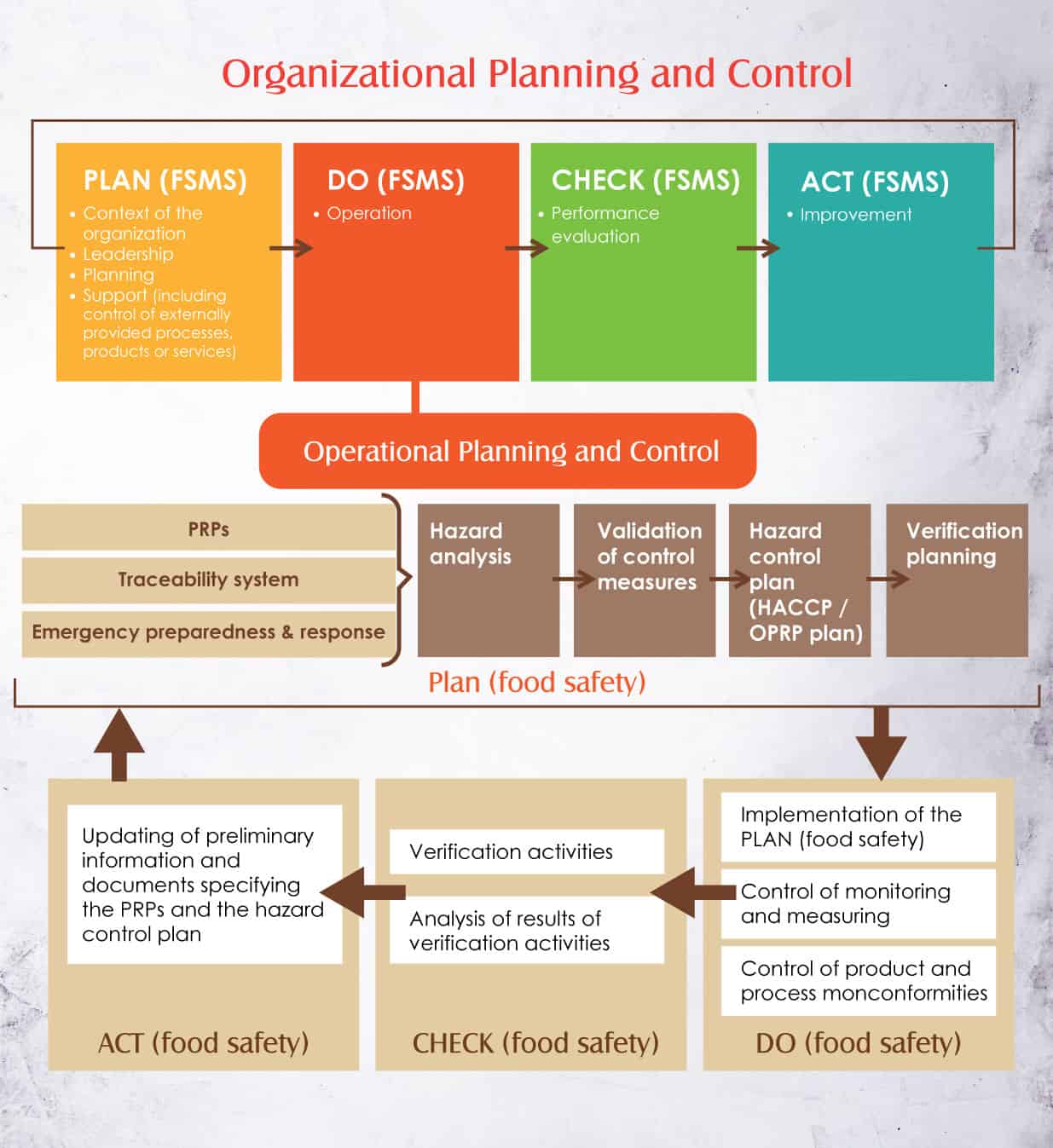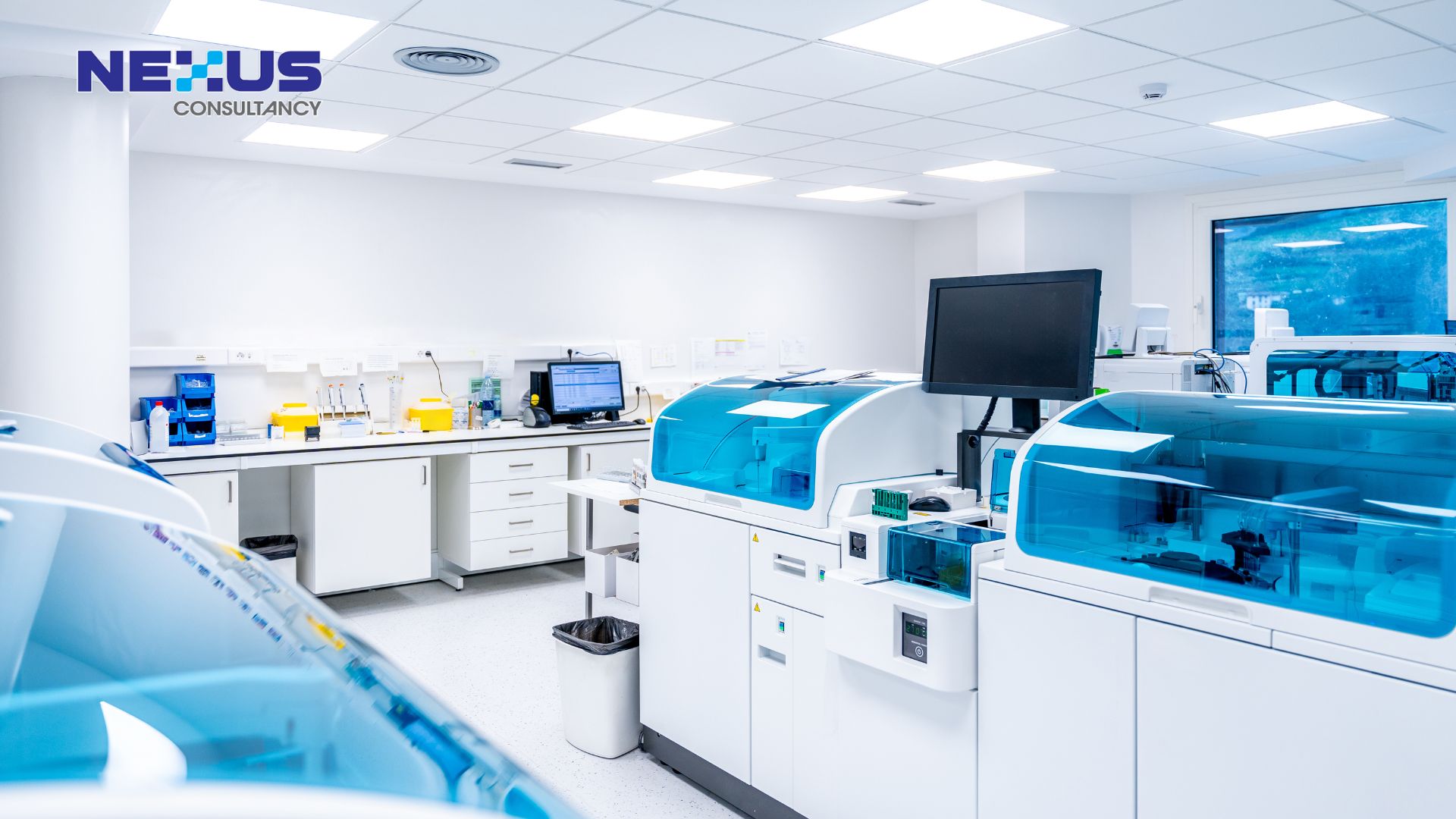The 2018 version of ISO 22000 was published on 19 June 2018. With this release, ISO 22000:2005 will be withdrawn. Companies certified to the ISO 22000:2005 standard have to transition their certificate to ISO 22000:2018, and there is a 3-year transition period until June 19 2021.

WHAT ARE THE MAJOR CHANGES?
- The high level structure: in order to make life easier for businesses using more than one management system standard, the new version of ISO 22000 will follow the same structure as all the other ISO management system standards, the High Level Structure (HLS).
- The risk approach: the standard now includes a different approach to understanding risk.
- The PDCA cycle: the standard clarifies the Plan-Do-Check-Act cycle, by having two separate cycles in the standard working together: one covering the management system and the other, covering the principles of HACCP.
- The operation process: a clear description is given of the differences between key terms such as: Critical Control Points (CCPs), Operational Prerequisite Programmes (OPRPs) and Prerequisite Programmes (PRPs).
*Source: www.iso.org

FIgure 1
About ISO 22000: 2018
The new ISO 22000:2018 as illustrated in Figure 1, the process approach uses the concept of the PDCA cycle at two levels. The first covers the overall frame of the FSMS (Clause 4 to Clause 7 and Clause 9 to Clause 10). The other level (operational planning and control) covers the operational processes within the food safety system as described in Clause 8. Communication between the two levels is therefore essential. ISO 22000:2018 employs the process approach, which incorporates the Plan-Do-Check-Act (PDCA) cycle and risk-based thinking.
- This process approach enables an organization to plan its processes and their interactions.
- The PDCA cycle enables an organization to ensure that its processes are adequately resourced and managed, and that opportunities for improvement are determined and acted on.
- Risk-based thinking enables an organization to determine the factors that could cause its processes and its FSMS to deviate from the planned results, and to put in place controls to prevent or minimize adverse effects. Risk-based thinking is essential for achieving an effective FSMS. In this document, risk-based thinking is addressed on two levels which are organizational risk and operational risk (Hazard Analysis)
How can Nexus TAC help?
We can provide:
- Awareness training to help you understand the requirements of ISO 22000:2018, overview of the content and key changes compared with ISO 22000:2005, the migration process etc.
- Detailed insight into the content and changes and about the required steps for transition.
- A gap analysis, which can be used to highlight the changes also assess your management system against the requirements of the new standard and identify the gaps that need to be addressed.
- Transition audits.
OR
Join our ISO 22000 Introductory Seminar!
ISO 22000:2018 Introductory Seminar
Date: 15 August 2018
Time: 9:30am – 12:30pm
Venue: Qliq Hotel, Damansara
Fee: RM 100 / pax (Morning tea break included)
Contact us today for more information on ISO 22000 and our services.
NEXUS TAC
Unit C-02-08 (lobby 4) Block C
No 1, Jalan SS20/27, 47400 Petaling Jaya
Selangor Darul Ehsan, Malaysia
PHONE
Tel: +603 7728 1637 / +603 7728 1590
Fax: +603 7722 5164
sales@nexustac.com
Source: www.iso.org







